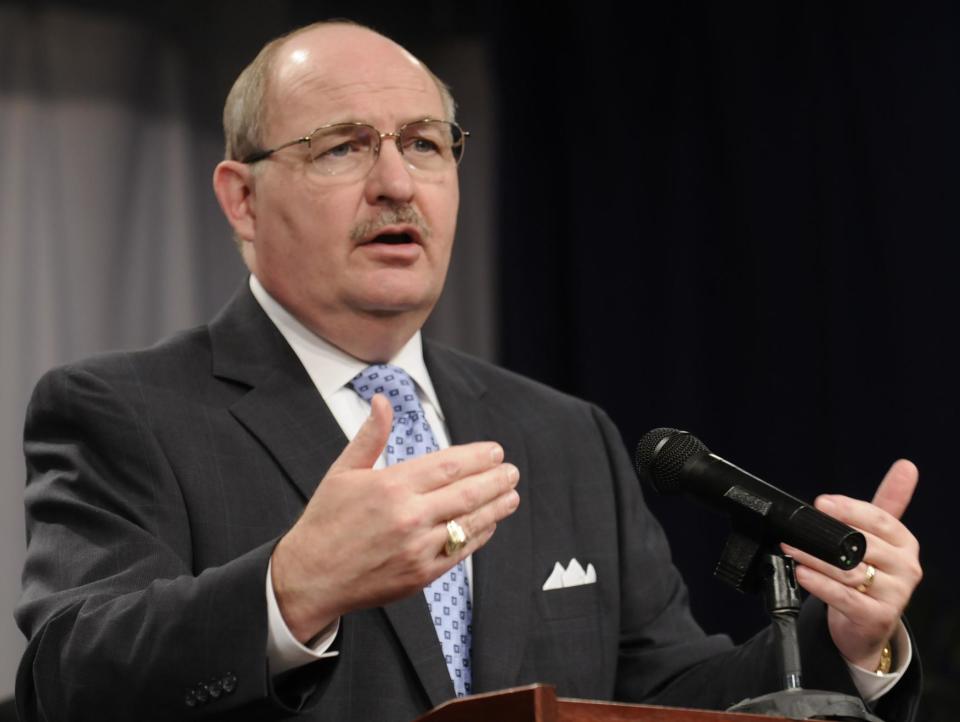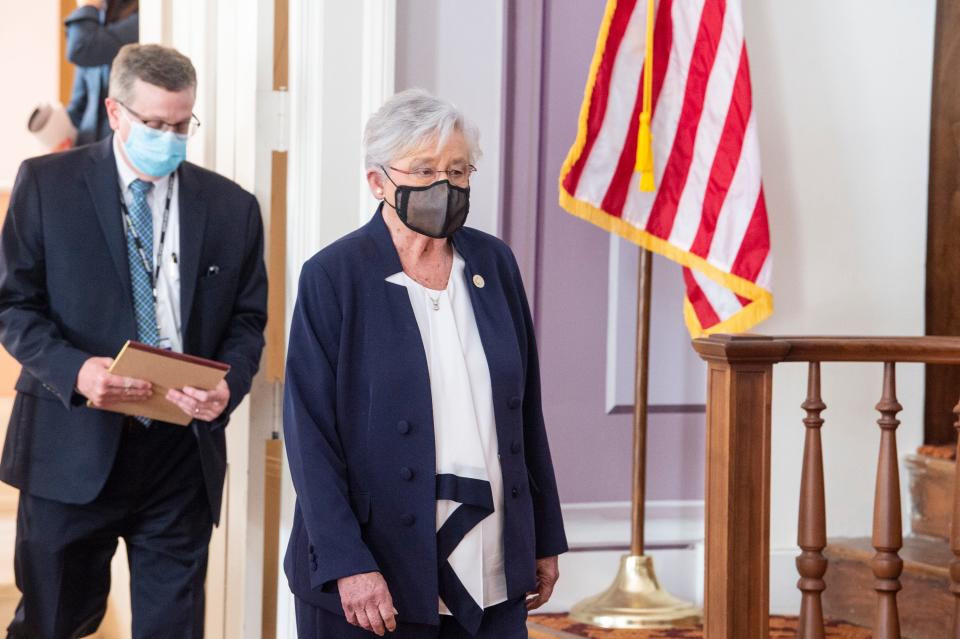COVID-19 omicron variant uncertainty adds to Alabama health officials' list of concerns
- Oops!Something went wrong.Please try again later.
There’s a lot Alabama public health officials don’t know about omicron, COVID’s new “variant of concern.” But the variant adds an item to a list of worries.
The colder weather and holiday season are likely to cause an increase in COVID cases and potential hospitalizations. The flu season looms. And funding to shore up hospital staffing amid the state’s struggle with the delta variant this summer is starting to run out.

“I had the feeling with delta that we were shooting at a moving target, and we were always a little behind in staffing and other issues,” said Dr. Don Williamson, the executive director of the Alabama Hospital Association. “We want to think about how do we prepare to get ahead of the omicron variant if it’s important.”

The “if” is key. Public health researchers stress that much remains unknown about omicron. The variant emerged in South Africa, and officials in Scotland and Portugal have reported cases. As of Tuesday morning, the United States had not had any confirmed reports of the variant. The Alabama Department of Public Health (ADPH) said Tuesday that there had not been any confirmed cases of the variants in the state.
Early reports suggest the variant could spread faster than previous versions. But the picture remains blurry.
“Obviously, the concern with this new variant are changes in the virus which could theoretically make it more transmissible and/or able to evade the antibodies that have been produced either through natural infection or vaccine-induced immunity and could extend to the monoclonal antibodies used for treatment,” said Dr. Wes Stubblefield, a district medical officer for ADPH’s northern and northeast districts. “This generated the responses from the White House and other organizations in the last few days. Hopefully, the vaccine will continue to provide protection against severe disease, hospitalization and death as it has with previous variants.”
Health officials believe vaccines will continue to provide protection against severe cases of COVID-19. Both Stubblefield and Dr. Jeanne Marrazzo, the director of the UAB Division of Infectious Diseases, have stressed the benefits of getting the shot.
More: CDC says all adults should get booster because of the omicron variant: Latest COVID-19 updates
“We should learn more from laboratory work about whether the antibodies that people get when they get vaccinated will protect them against infection against the variant,” Marrazzo said on a press call Monday. “In the meantime, all we can say is be cautious, get vaccinated if you haven’t been, get your booster shot if you haven’t had it.”
The delta surge in Alabama this summer owed a lot to Alabama’s low vaccination rate relative to the rest of the country. About 56% of Alabama’s population has gotten at least one COVID shot, compared to 70% in the United States. Only 46% of the state population is fully vaccinated, lower than the national average of 59%.
Unvaccinated patients swamped Alabama's intensive care units this summer, in many hospitals making up more than 90% of patients hospitalized for COVID. The handful of vaccinated patients hospitalized for COVID tended to be much older and often had underlying health problems. The surge pushed health care workers to the limit and required federal teams to deploy to some south Alabama hospitals to provide assistance.
From September: Unvaccinated patients make up majority of Alabama's COVID-19 patients in hospital ICUs
The state saw a surge in hospitalizations last January after the holidays, and Williamson said health officials were expecting an increase, though its severity remains unknown. Fears last year that the flu season would add additional stress to the state’s hospitals did not materialize, but Williamson said growing resistance to masking and social distancing had him concerned.
“I’m worried because everybody’s just exhausted,” he said. “But I’m also worried because of the holidays and a new variant in population that’s less than 50% fully vaccinated.”
Gov. Kay Ivey earlier this year authorized $13 million to help hospitals with staffing. That money is starting to expire. Gina Maiola, a spokeswoman for the governor’s office, wrote on Tuesday that the governor’s office was “evaluating all of the potential needs and will continue working with the Legislature, who ultimately allocates the APRA money.”

The United States and other countries have instituted bans on countries with reports of the variant. Marrazzo said it will likely be “another week or two” before officials can know if those steps were prudent; not enough, or an overreaction. She recommended keeping masks at hand, especially when individuals find themselves in poorly ventilated areas.
“If you’re inside, use caution, especially if you are immunocompromised or if you are around people who are immunocompromised or if you will be around people who are immunocompromised or who are not vaccinated or who might not have the best response to the vaccine,” she said.
Contact Montgomery Advertiser reporter Brian Lyman at 334-240-0185 or blyman@gannett.com.
This article originally appeared on Montgomery Advertiser: Omicron uncertainty adds to Alabama health officials' list of concerns

